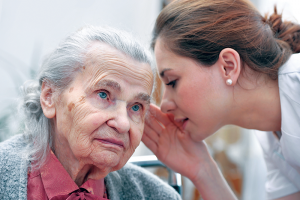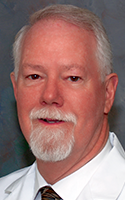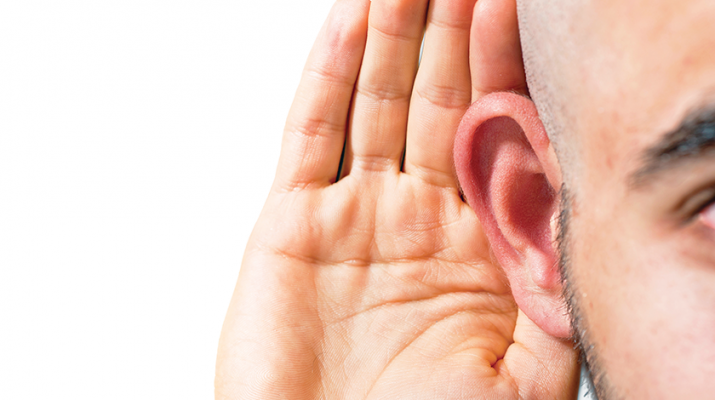Age-related hearing loss: Is it inevitable?
By Barbara Pierce
 The longer we live, the more likely we are to experience age-related hearing loss,” said Robert Bishton, hearing specialist at Action Ear Hearing of New Hartford. “Some begin to experience hearing loss in their 60s. Some may not experience it until they’re in their 80s. We’re all different.”
The longer we live, the more likely we are to experience age-related hearing loss,” said Robert Bishton, hearing specialist at Action Ear Hearing of New Hartford. “Some begin to experience hearing loss in their 60s. Some may not experience it until they’re in their 80s. We’re all different.”
Age-related hearing loss is called presbycusis, explained Bishton. It’s caused by deterioration in the functioning of the inner ear. About one-third of people over the age of 60 have hearing loss. By 80, it rises to about half.
“I compare it to expecting that you’ll need glasses to see up close as you get older. This often starts in the 40s, but for some it can be their 30s, and for others, their late 40s,” he added. “Life is like a deck of cards — we’re all dealt a different hand.”
“Don’t accept it. Don’t accept hearing loss,” he said. “Get treated and live life to the fullest.”
“Don’t ignore it or dismiss it as a normal part of aging. If you dismiss it, you become antisocial. People who can’t hear when others talk just fade away. They become socially isolated and their relationships become strained,” Bishton said.
Also, research found that older adults with hearing loss are more likely to develop dementia, compared to those with normal hearing. The risk increases as a person’s hearing loss grows worse. Experts speculate that hearing loss could lead to dementia by making individuals more socially isolated — a known risk factor for dementia and other cognitive disorders.
Also, a significant association between hearing impairment and moderate to severe depression has been found.

“If you’re losing your hearing, get it diagnosed and treated. Get it treated and love life,” he said. “Hearing aids today are fantastic — they’re small. Nobody even notices or cares. A person would rather have a face-to-face conversation with you when you’re not going “huh?” or asking him to repeat himself.”
Though there’s no way to avoid age-related hearing loss if you’re genetically predisposed to it, there are things you can do to minimize hearing loss.
“Take care of your hearing. Protect your hearing,” Bishton said.
Loud noise equals trouble
Is there is a correlation between loud noises and hearing loss?
“Absolutely!” he said. Repeated or prolonged exposure to anything over 85 decibels can harm your inner ear. Your hair dryer or lawn mower might register about 90 decibels. A power drill can put out 100 decibels and start to do damage after only 15 minutes. Music turned up and played through earphones can easily reach 105 decibels.
“Today we don’t just rake leaves or shovel snow; we use leaf blowers and snow blowers with high decibels. Even one blast of a shotgun can cause damage,” said Bishton.
When you are exposed to loud noise, choose ear protection that works for you. The best kind is the kind you’ll use — earmuffs, earplugs. Most are inexpensive.
Other things that contribute to hearing loss are infections, medications, head injuries, strokes and tumors. Even a buildup of earwax can cause significant loss. To get the right treatment, you need to know the reason for your hearing loss.
Certain medications may cause hearing loss, said Bishton — medication for hypertension, high doses of antibiotics, or steroids. If you’re taking one of these medications and notice you’re having more difficulty hearing, contact your doctor.
Smoking and exposure to secondhand smoke have been linked to a higher likelihood of hearing loss as you age.
For those with hearing loss, the Hearing Loss Association of America offers help. “We’re a self-help group,” said Roger MacCasland, leader of the Utica chapter.
The mission of the group is to open the world of communication to people with hearing loss by providing information, education, support and advocacy. Its website www.hearingloss.org features valuable information.
“We share a commonness,” said MacCasland. “The group helps you feel you are not alone. We have presenters; we get answers; we share resources.”
MacCasland publishes the group’s newsletter, which contains information on local resources and helpful advice. For information on the group and the newsletter, email MacCasland at vulcanin@aol.com.
If you’ve noticed that you have trouble hearing or if people say you do, that’s a good indication that you have a problem. But it doesn’t tell you anything about the cause or the extent of your hearing loss, and it doesn’t move you closer to a solution.

